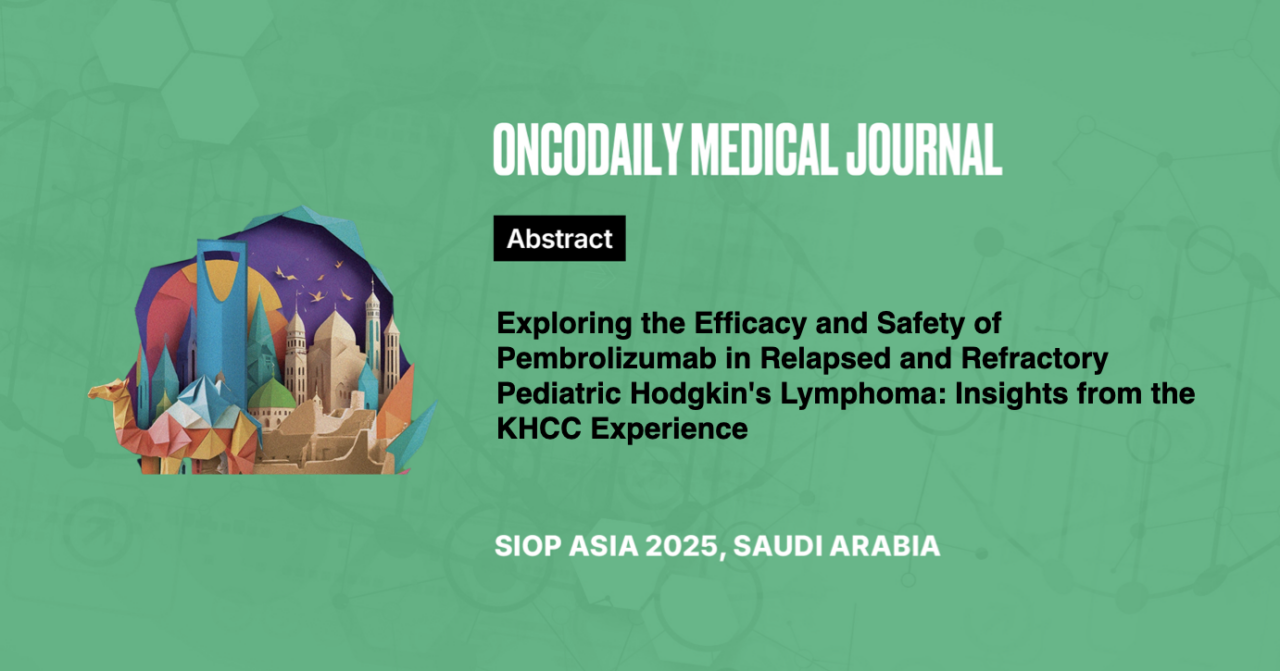Exploring the Efficacy and Safety of Pembrolizumab in Relapsed and Refractory Pediatric Hodgkin’s Lymphoma: Insights from the KHCC Experience
Abstract
Introduction: Keytruda (pembrolizumab), an immune checkpoint inhibitor, has shown promise in treating various malignancies, including Hodgkin lymphoma (HD). This study evaluates its efficacy and safety in patients with relapsed/refractory (R/R) HD treated at KHCC.
Methodology: A retrospective analysis was conducted on 36 R/R HD patients treated with Keytruda. Eligible patients had failed at least three lines of chemotherapy, with Keytruda primarily used as a bridging therapy before autologous bone marrow transplant (ABMT). Data on demographics, disease characteristics, treatment regimens, and outcomes were analyzed. Primary endpoints were overall survival (OS) and response rates, with secondary endpoints including PET scan-assessed responses.
Results: Out of 36 patients, 21 (60%) achieved complete remission (CR) after Keytruda, with 16 (76%) proceeding to ABMT. Among the 14 patients who did not achieve CR, 6 had disease progression, 8 showed partial or stable responses, and most required salvage treatments, including ABMT (7 patients) or allogeneic transplant (6 patients). By the end of salvage therapy, all but one patient achieved CR. Common adverse events included fatigue (30%), nausea (20%), and rash (10%).
Logistic regression revealed no significant association between Hodgkin subtype, stage, or risk group and response rates, although female patients showed a trend toward better outcomes (p=0.07). At a median follow-up of 24 months (range: 6-36 months), two patients had died, four were alive with disease, and the remaining were alive with no evidence of disease.
Conclusion: Keytruda is effective in inducing CR in R/R HD patients, particularly as a bridging therapy to ABMT, with manageable toxicity. Achieving CR after Keytruda was associated with improved outcomes, and female patients showed a trend toward better responses. These findings support its use in this challenging patient population.





